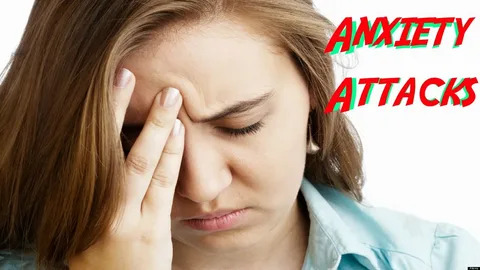
Anxiety is a common experience, with millions of people around the world grappling with its effects on their daily lives. While anxiety medication can play a significant role in managing symptoms, many individuals benefit from incorporating a variety of coping strategies to achieve a more holistic approach to mental health. This article explores practical tips and techniques to help manage anxiety effectively.
Understanding Anxiety
Anxiety is a natural stress response and can manifest in various forms, such as generalized anxiety disorder (GAD), panic disorder, and social anxiety disorder. It involves a combination of emotional, physical, and cognitive symptoms, including excessive worry, restlessness, an increased heart rate, and difficulty concentrating. Recognizing these symptoms is the first step toward managing anxiety.
Lifestyle Modifications
Regular Exercise
Physical activity is one of the most effective ways to reduce anxiety. Exercise increases the production of endorphins, the body’s natural mood lifters, and can help alleviate symptoms of anxiety. Activities such as walking, running, yoga, and dancing can be particularly beneficial. Aim for at least 30 minutes of moderate exercise most days of the week.
Healthy Diet
What you eat can significantly impact your mood and anxiety levels. A balanced diet rich in fruits, vegetables, whole grains, and lean proteins supports overall mental health. Reducing caffeine and sugar intake can also help, as these substances can exacerbate anxiety symptoms.
Adequate Sleep
Quality sleep is essential for mental health. Anxiety can often interfere with sleep, creating a vicious cycle of sleep deprivation and increased anxiety. Establishing a regular sleep routine, avoiding screens before bedtime, and creating a calming bedtime environment can promote better sleep hygiene.
Mindfulness and relaxation techniques
Meditation
Meditation is a powerful tool for managing anxiety. It involves focusing the mind on the present moment, which can help reduce the tendency to ruminate on worries. You can incorporate practices like mindfulness meditation, guided imagery, and body scans into your daily routines.
Deep breathing exercises
Deep breathing exercises can quickly reduce anxiety by promoting relaxation. You can practice techniques like diaphragmatic breathing, the 4-7-8 breathing method, and alternate nostril breathing anywhere.
Progressive muscle relaxation
This technique involves tensing and then slowly releasing different muscle groups in the body. Progressive muscle relaxation helps reduce physical tension and promotes a sense of calm.
Cognitive-behavioral techniques
Cognitive Restructuring
Cognitive restructuring involves identifying and challenging negative thought patterns that contribute to anxiety. By reframing these thoughts, individuals can develop a more balanced perspective. Cognitive-behavioral therapy (CBT) frequently employs this technique, which individuals can practice with the assistance of a therapist or self-help resources.
Exposure Therapy
Exposure therapy is a CBT technique that involves gradually facing feared situations or objects. By doing so, individuals can reduce the power these fears hold over them. This method is particularly effective for phobias and social anxiety disorders.
Professional Support
Therapy and counseling
Engaging with a mental health professional can provide valuable support and guidance in managing anxiety. Therapists can offer tailored strategies and interventions, such as CBT, to address specific anxiety symptoms. Group therapy and support groups can also provide a sense of community and shared understanding.
Anxiety Medication
For some individuals, anxiety medication may be necessary to manage symptoms effectively. A healthcare provider can prescribe medications like selective serotonin reuptake inhibitors (SSRIs), benzodiazepines, and beta-blockers. It is important to discuss the benefits and potential side effects of anxiety medication with a doctor to determine the best approach.
Lifestyle Practices for Long-Term Management
Journaling
Writing about your thoughts and feelings can help clarify and process emotions. Keeping a journal allows for reflection and can help identify patterns of anxiety triggers and responses.
Setting realistic goals
Setting achievable goals can help manage anxiety by providing a sense of purpose and direction. Break larger tasks into smaller, manageable steps, and celebrate progress along the way.
Social Support
Connecting with friends, family, and supportive communities can provide emotional support and reduce feelings of isolation. Sharing experiences and coping strategies with others can be immensely comforting and helpful.
Conclusion
Managing anxiety is a multifaceted process that often involves a combination of lifestyle changes, cognitive techniques, relaxation practices, professional support, and, when necessary, anxiety medication. By integrating these strategies, individuals can develop a personalized approach to managing anxiety and improving their overall well-being. Remember, it is important to seek professional advice when needed and to be patient with oneself in the journey towards managing anxiety.
